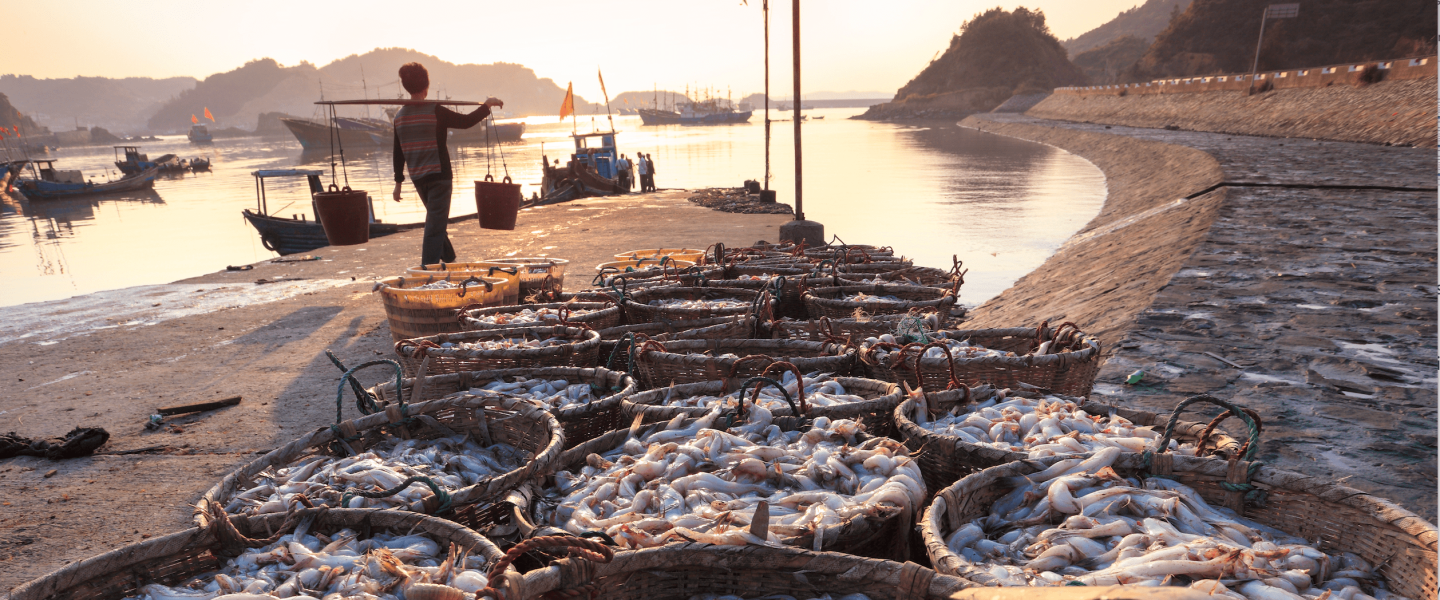Opinion. Reform or Step Away.
Pressure is culminating for the Marine Stewardship Council (MSC) to be crystal clear about the scope, standing and agency of their voluntary international standard if their objective remains solely focused on ecological sustainability while realistically excluding comprehensive human rights protections for associated human sustainability at sea.
In our increasingly interconnected world, the products we consume often have a hidden story behind them. Nowhere more is this evident than in the global fisheries and aquaculture seafood industries.
Numerous civil society exposés have brought to the public’s attention the issues of slavery and child labour in the fisheries and aquaculture industries, most recently the Ocean Outlaw Project.
The thought that the seafood products we consume could be caught by enslaved and exploited people or children forced to work at the detriment of their childhood development and education should be deeply worrying to the global consumer.
Every part of the fisheries and aquaculture seafood supply chain, from employers through to suppliers and retailers, all have an obligation to do everything they can to prevent, curtail and eliminate human and labour rights abuses.
One way of reducing the risk and occurrence of such abuses in supply chains is via the use of voluntary and competent certification standards, rating and social audits. Certification is the process of a third-party organisation assessing organisations against a set of standards, typically undertaken via independent audit.
In the seafood industry, MSC is the most prominent standard with effective control of the largest certification schemes, but it has a chequered history when it comes to its human sustainability performance, and pressure is rapidly mounting for it to reform.
Most recently, the On the Hook campaign has highlighted the shortcomings in MSC’s business model and operations. But that is not all.
(Updated 28 October 2023 following request from MSC). The recent Ocean Outlaw Project report on alleged human rights abuses in the Chinese seafood sector and related supply chain highlighted that “All ten of the Chinese seafood processing plants tied to Uyghur forced labor have been certified by the Marine Stewardship Council (MSC)…”
MSC has responded to the Project but has yet to comment in-depth publicly.
It is Time for Urgent Reform and an Honest Approach
What cannot continue for MSC is the current status quo with implied embedded human and labour rights safeguards associated with the infamous blue tick.
MSC cannot abdicate responsibility for protecting the human factor when issues occur whilst at the same time arguably marketing itself to the public, suppliers, retailers and all supply chain stakeholders, from banks to insurers, as an effective and trusted assurer against human rights abuses under its aegis.
Conflicting Positions. Embedded Uncertainty.
Yet when these assurances are found to be hollow, MSC responds, “Regarding your request, you will be aware that our our [sic] standards focus on ecological sustainability.” (email from MSC Head of Public Relations to Human Rights at Sea, 12 October 2023).
Worryingly, there is mixed messaging and apparent uncertainty.
MSC is entirely wrong when it says it focuses on ecological sustainability. It published last year, to significant publicity, its MSC Labour Eligibility Requirements.
Moreover, organisations clearly rely on MSC to give wide-ranging supply chain assurance. The following is from Seafood Source, reporting on the responses to the Outlaw Ocean Project allegations:
In response to the implications, Cité Marine said that […] Qingdao Tianyuan Aquatic Product company is certified to the Marine Stewardship Council’s chain of custody standard, which includes labor standards.
“This standard guarantees compliance with social standards, including the absence of forced labor,” Cité Marine Assistant General Manager Sylbie Gey told investigators.
Must Do Better, Step Away or Be Removed
Certification, standards and rating schemes need to do much better, step away or must be removed from the global assurance system as being not fit for purpose in protection of fundamental rights.
Objectively, they have the potential to be a powerful tool in addressing human and labour rights abuses in supply chains, but they are themselves not the sole solution. They are simply one part of the toolbox alongside collective bargaining, state oversight and legislative checks, for example. They have, however, become the unchallenged arbiter of an apparent holistic assurance process seemingly without check or balance.
Several schemes now working with HRAS accept this and are committed to improving in a transparent manner. Our soon-to-be-published follow-up 2.0 Report to the v1.1 ‘Does It Do What It Says On The Tin’ will highlight the direct engagement and improvement that many schemes have already made. However, some continue to fail to or deliberately will not engage.
What Next?
We urgently call upon MSC to responsibly use their UK charitable status and considerable economic weight, backed by significant profits, to be a force for good or step away from any suggestion that their standard can assure against human or labour rights abuses in the global seafood supply chain.
Silence is not an option. Inaction is not an option. Civil society is watching.
Contact: If you have any questions, please write to us at enquiries@humanrightsatsea.org
About Sharing. We welcome the use and dissemination of our work with proper accreditation. Please ensure that our Terms of Use are conformed with at all times.
Please support Human Rights at Sea today by CLICKING HERE
